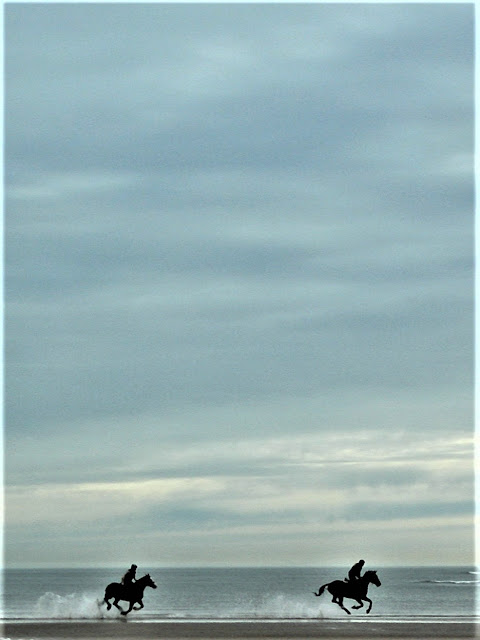THE TIME MACHINE - H G WELLS
The interesting thing about H G Wells' The Time Machine is that his vision of the future is based on a class analysis where the middle class are noticeable by their absence and the world is divided between the ruling and the working class, though Wells throws a spanner in the works by suggesting it might be the working class who are the actual rulers.
It's interesting also that when it comes to books and visions of the future it's always 1984 and Brave New World that are cited as the touchstones within that particular field whilst The Time Machine is studiously ignored. To make up for this perhaps, H G Wells is often cited as the father of science fiction alongside Jules Verne although the difference between the two is that whilst Verne was interested in the scientific mechanics of the future, Wells was more interested in the social impact of those same mechanics.
Narrated in the first person though employing a similar trope to Conrad's Heart Of Darkness where the first person narrative is conveyed by a third party, The Time Machine is the story of an un-named scientist known only as The Time Traveller who invents a machine that can traverse the Fourth Dimension. What this means is that he can travel through time and on his very first test flight is flung into the far future. He lands in a world or rather the world around him changes to one where mankind has effectively divided into almost two separate species.
Above ground live the Eloi who are child-like and simple, whose essential needs such as food and clothes are provided for, leaving them with nothing to do apart from play. They are possessed of very little intelligence, are physically weak, fey and enfeebled; and like children they have a fear of the dark.
Underground live the Morlocks who are simian-like, of bleached skin and with large eyes to enable them to see in the dark. They too are dim-witted though have a propensity for industrial labour as that is what they are conditioned to: To work and maintain the great engines that thud away under the earth for some unspecified and probably fruitless reason.
As The Time Traveller deduces: Over time the gradual widening of the social distance between the Capitalist and the Labourer had arrived at its logical conclusion and Industry and the less ornamental aspects of civilization had descended underground and out of sight. In the end this had left above ground the Haves, pursuing pleasure, comfort and beauty whilst below ground were the Have-nots, the workers continuously adapting to the conditions of their labour. Evolution had then naturally taken its toll resulting in the refined beauty and child-like demeanour of the Eloi and the pale, ugly pallor of the Morlocks.
Further to this, The Time Traveller deduces the Morlocks have an aversion to light and are only able to ascend above ground at night and only after the moon has waned. This was why the Eloi are afraid of the dark, because with the dark come the Morlocks. And then to cap it all, The Time Traveller discovers that whilst the Eloi feed only on fruit and nuts, the Morlocks are carnivores feeding only on meat. That meat being the meat of the Eloi. The Morlocks eat the Eloi - like cattle in the field.
On reading The Time Machine, I wondered if H G Wells might have been interested in eugenics and lo and behold with a quick google search there it is: Reports of how he was an enthusiastic supporter of it, hailing eugenics as the first step toward the removal of 'detrimental types and characteristics' and the 'fostering of desirable types' in their place.
I suspected as much. It's there between the lines of The Time Machine. It's there in the way the Morlocks - H G Wells' symbolic representation of the working class - are depicted as ugly and worthy only of being killed whilst the Eloi are cast as the good guys. It's there in H G Wells' very blatant anti-working class prejudice made palatable by the disguise of science fiction.
Who'd have thought it? You read a book because it's a classic of its genre and because you liked the film based upon it from 1960 starring Rod Taylor and you come away feeling a bit repulsed. Why has this not been highlighted before? That The Time Machine is an early advertisement for the art and science of the breeding of better men through the extermination of 'inferior' DNA? I wonder if Hitler ever read it? Or even Boris Johnson and certain other members of the public school-educated Conservative Party?
John Serpico




